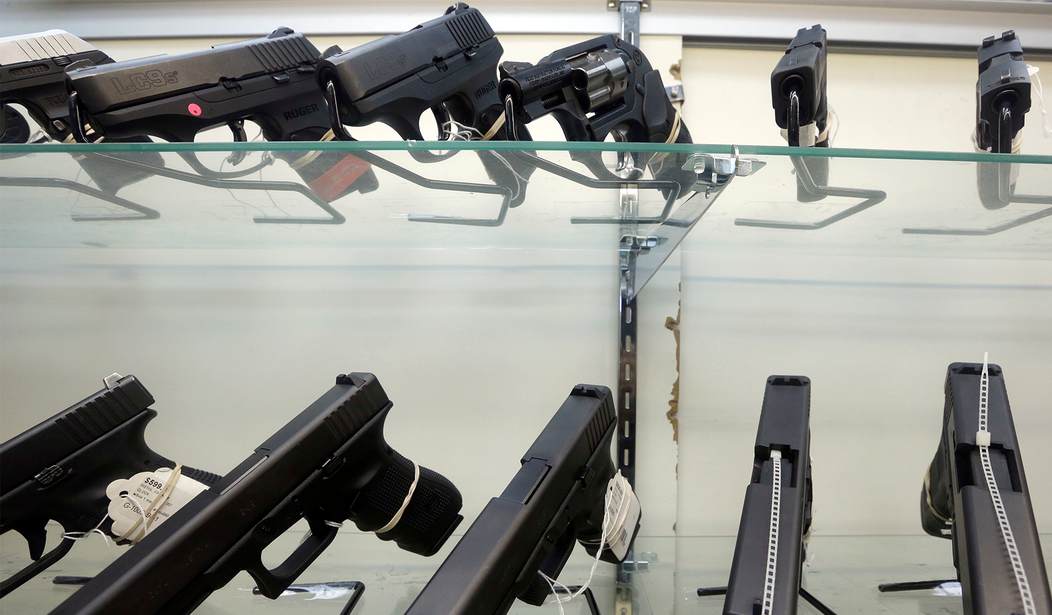If you were looking for another reason to celebrate the Supreme Court’s ruling in the New York Rifle & Pistol Association v. Bruen case, this one should put a smile on your face. The decision in Bruen has already opened the door for the gun rights crowd to do away with several problematic laws that restrict the right to keep and bear arms. In the latest development, a judge issued a ruling in a case that would further prevent the state from curtailing gun ownership.
A federal trial court ruled that being an unlawful user of a controlled substance does not automatically remove a person’s Second Amendment rights. U.S. District Judge Kathleen Cardone dismissed a case against a woman charged with possessing a firearm as an unlawful user of marijuana and transferring a firearm and ammunition to her husband, who was also an illegal user of controlled substances. Judge Cardone ruled that the federal prohibitions regulating these charges are unconstitutional and deviate from historical firearm regulation traditions.
In her opinion, Judge Cardone stated:
In short, the historical tradition of disarming ‘unlawful’ individuals appears to mainly involve disarming those convicted of serious crimes after they have been afforded criminal process. Section 922(g)(3), in contrast, disarms those who engage in criminal conduct that would give rise to misdemeanor charges, without affording them the procedural protections enshrined in our criminal justice system.
This ruling is the second in recent months to strike down the federal ban on gun possession by marijuana users. The decision is part of a series of lower court rulings challenging federal criteria for firearm possession after the Supreme Court’s decision in New York State Rifle and Pistol Association v. Bruen.
The case in question involved a woman, Paola Connelly, who was charged with firearm possession and transfer due to her admitted marijuana use and her husband’s drug use. Judge Cardone used the Bruen test and found that Connelly could not be categorically excluded from Second Amendment protection due to her lack of criminal history.
The judge rejected comparisons to colonial-era laws offered by the government, stating they were not analogous to the current ban on firearm possession by certain individuals. “She rejected the comparison to a 1655 colonial Virginia law that prohibited the shooting of guns while drinking at certain events as too broad of a comparison,” according to The Reload.
In early February, a federal judge in Oklahoma ruled against the federal prohibition which prevented marijuana users from owning firearms. The Reload noted that this case “is currently awaiting appeal in the Tenth Circuit.”
This appears to be part of a growing trend after the Bruen decision according to the news outlet:
It’s also the latest in a string of lower court rulings whittling away at the legality of federal criteria for who may be prohibited from purchasing or possessing firearms following the Supreme Court’s decision in New York State Rifle and Pistol Association v. Bruen. Since that decision, multiple other federal courts have struck down the federal ban on the possession of guns by those subject to domestic violence restraining orders and those under felony indictment.
The Federal Gun Control Act of 1968 and the Federal Omnibus Consolidated Appropriations Act of 1997 prohibit people who fit into certain categories from transporting or possessing guns and ammunition. These categories include those who use illegal drugs or are addicted to other controlled substances, people who have been convicted of misdemeanor domestic violence, and others.
It is worth noting that a prior conviction for drug possession is not required for this law to apply, so even if one has never run afoul of law enforcement, they can still be punished for owning a firearm. The government needs only evidence of drug use to prosecute. This can include positive drug screens or even posts on social media showing someone using marijuana or another drug.
These rulings are another step in the right direction in the battle for gun rights.
First and foremost, these laws violate the fundamental right to bear arms, as enshrined in the Second Amendment of the United States Constitution. The Second Amendment guarantees the right of citizens to own firearms for self-defense, hunting, and other lawful purposes. Denying this right to individuals who are drug users would be an infringement on their constitutional rights without due process or individual assessment of their risk of gun-related harm.
Additionally, banning gun ownership among drug users would disproportionately impact individuals who use drugs for medicinal purposes, such as those with chronic pain or other medical conditions. Many states in the U.S. have legalized the use of marijuana for medical purposes, and individuals who use marijuana medicinally should not be denied their right to own a firearm solely based on their medication use. This could result in unintended consequences, including limiting access to guns for law-abiding citizens who are responsibly managing their medical conditions with legal drug use.
Furthermore, these laws could easily lead to discriminatory practices, disproportionately affecting certain communities. The War on Drugs has been shown to be biased against minority communities, resulting in over-policing and disproportionate arrests and convictions. Gun control is already racist in its application, as I have explained previously. As with most authoritarian leftist policies, these disproportionately harm the marginalized groups the left claims to champion.
The Bruen decision has created an exciting time for proponents of gun rights. Now they can go on the offensives and attack some of the laws Democrats and Republicans have passed to restrict gun ownership with even more alacrity now that it is harder for states to curtail gun ownership. Let’s hope we see more of these cases in the near future.














